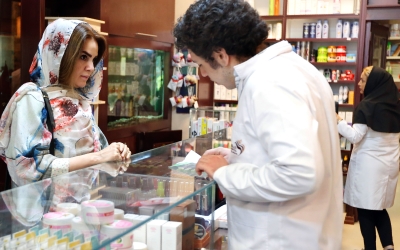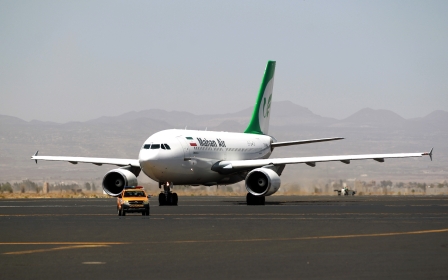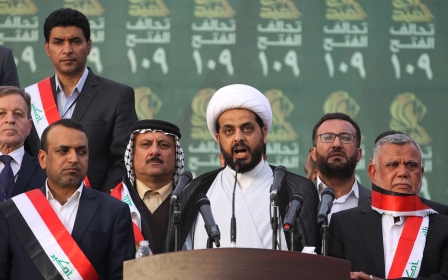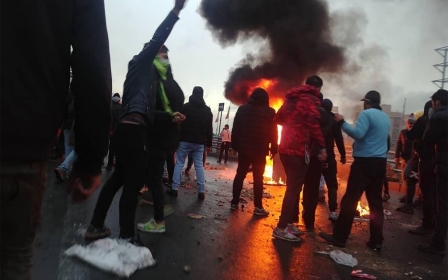US targets Iranian judges days after Democrats question sanctions policy
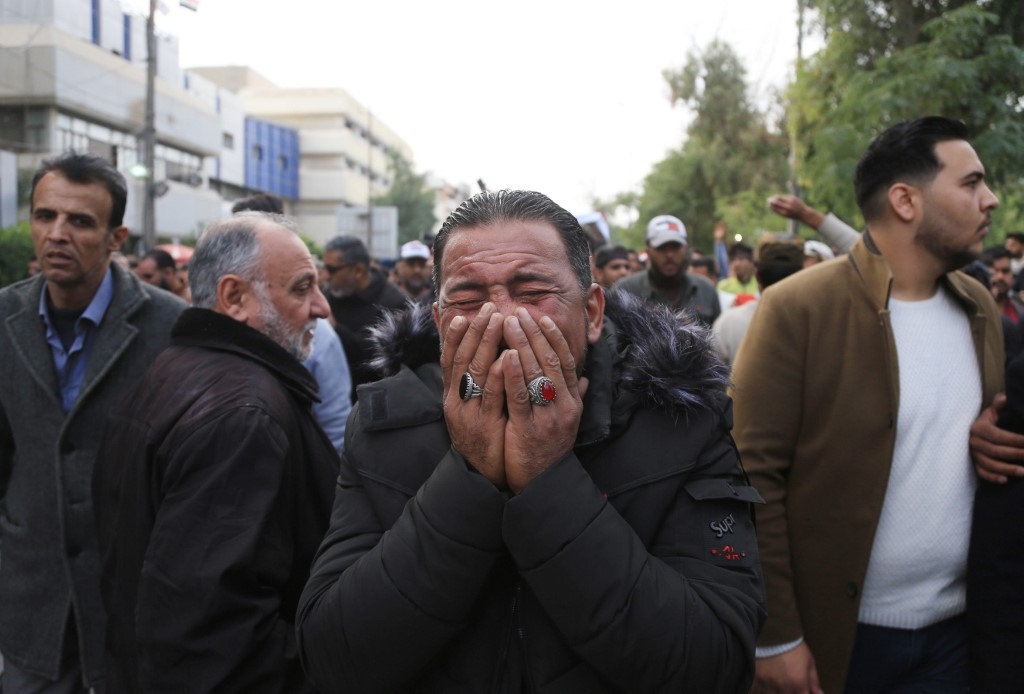
The United States has sanctioned two Iranian judges it accuses of having punished Iranian protesters, days after a group of Democrats urged the White House to review its "maximum pressure" campaign against Tehran.
Abolghassem Salavati and Mohammad Moghisseh, "oversaw the Iranian regime's miscarriage of justice in show trials" in which Iranians were penalised for "exercising their freedom of expression and assembly", a statement from the US Treasury Department said on Thursday.
'The sanctions put in place by this administration against Iran are nothing less than economic warfare'
- Ilhan Omar
"The United States will not be a bystander to ongoing oppression and injustice in Iran," Treasury Secretary Steven Mnuchin said in a statement.
Also on Thursday, Secretary of State Mike Pompeo announced visa restrictions for any current or former Iranian official that abuses or detains peaceful protesters.
At least 304 people have been killed since Iranians took to the streets in the middle of November, following a fuel price hike, according to rights group Amnesty International.
New MEE newsletter: Jerusalem Dispatch
Sign up to get the latest insights and analysis on Israel-Palestine, alongside Turkey Unpacked and other MEE newsletters
Iranian authorities have dismissed Amnesty's figures and claim foreign powers have infiltrated or organised the protests, as demonstrators burned pictures of senior officials and called on clerical rulers to step down.
'Economic warfare'
On Tuesday, 17 Democrat members of Congress, including Ilhan Omar and Rashida Tlaib, sent a letter to the treasury secretary, urging the Trump administration to review its sanctions policy and ensure that medicine and medical equipment be delivered to Iran through humanitarian channels.
"It should be made a priority to remedy the adverse consequences of these sanctions to ensure that Iranians have the basic human right of access to quality, affordable medicine," the letter read.
Omar said the sanctions on Iran had "devastated that country's middle class" and "increased hostility toward the United States".
"The sanctions put in place by this administration against Iran are nothing less than economic warfare," Omar said in a statement.
"This administration must answer for their attacks on Iranians' basic human right to affordable medicine."
While 97 percent of medicine in Iran is made domestically, the remaining three percent that is imported includes medicine the country needs to treat rare diseases, as well as multiple types of cancer.
The International Court of Justice, the UN's top court, ordered the US in October 2018 to ensure that its sanctions would not affect humanitarian aid to Iran.
However, a report published by the Human Rights Watch in October said that this is not what happened in practice.
While US sanctions do include humanitarian exemptions, the penalties for violating them coupled with the complex laws that govern them have deterred many banks from getting involved in any transactions with Iran, the rights group said.
Middle East Eye delivers independent and unrivalled coverage and analysis of the Middle East, North Africa and beyond. To learn more about republishing this content and the associated fees, please fill out this form. More about MEE can be found here.


